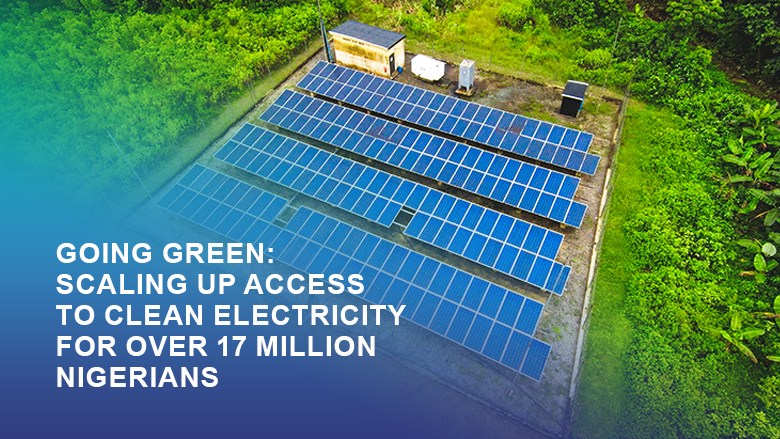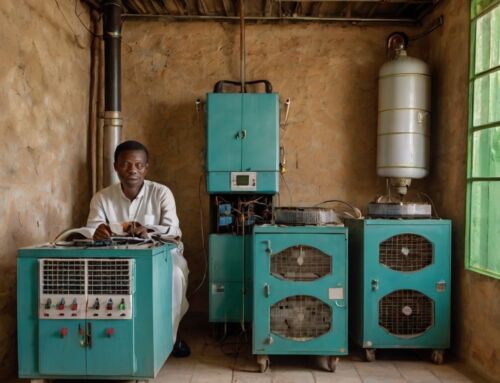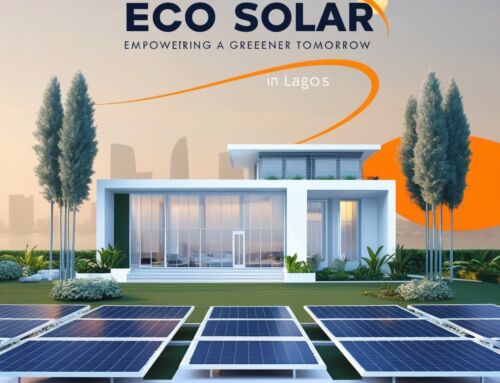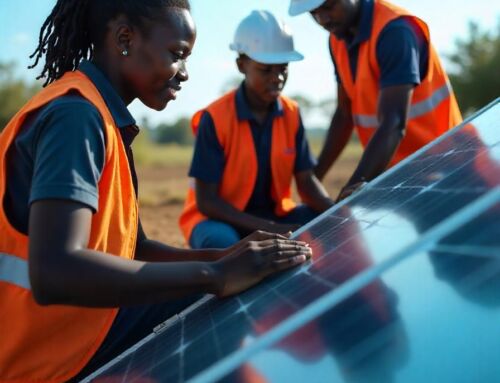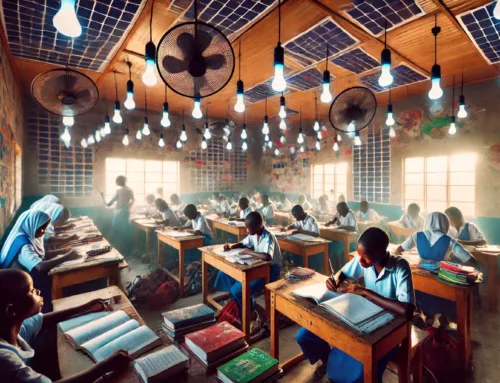Leading the Way in Sustainable Energy Solutions in Nigeria: Embracing Eco Solar
As Nigeria grapples with the challenges of energy access and environmental sustainability, innovative solutions in renewable energy are becoming more crucial than ever. One such solution that is gaining traction is Eco Solar – a more sustainable and environmentally-conscious approach to solar power. Eco Solar not only offers a cleaner alternative to traditional energy systems but also emphasizes the importance of responsible production, installation, and disposal. In this article, we’ll delve into the concept of Eco Solar, exploring how it works, its benefits, and why it’s an essential part of Nigeria’s future energy landscape.
What is Eco Solar?
Eco Solar is more than just a renewable energy source; it’s a comprehensive approach to solar energy that considers sustainability from every angle. From the materials used in manufacturing the panels to the methods of installation and eventual recycling, Eco Solar aims to minimize environmental harm while maximizing the benefits of solar energy.
The essence of Eco Solar lies in reducing the carbon footprint at every stage of the solar system’s lifecycle. This means ensuring that the production of solar panels doesn’t contribute heavily to pollution, that energy efficiency is prioritized, and that the installation process doesn’t harm the environment. Moreover, Eco Solar goes a step further by addressing the end-of-life stage of solar panels, ensuring responsible disposal and recycling to maintain the sustainability of the technology.
The Key Components of Eco Solar
Sustainable Manufacturing
One of the main pillars of Eco Solar is its focus on sustainable manufacturing. Traditional solar panels can contribute significantly to environmental harm during their production. In contrast, Eco Solar aims to limit the impact by focusing on the following principles:
- Eco-friendly Materials: The materials used in manufacturing Eco Solar panels are recyclable and sustainable. This reduces the reliance on non-renewable resources, ensuring the panels are more eco-friendly right from the start.
- Low-Carbon Production: Eco Solar manufacturing processes strive to reduce greenhouse gas emissions. This is achieved by using renewable energy sources and eco-conscious production techniques, ensuring that the process of creating solar panels doesn’t undo the benefits of using solar energy.
Energy Efficiency
Eco Solar systems are designed with energy efficiency in mind. Traditional solar panels often underperform in areas where sunlight is not as strong, but Eco Solar’s advanced technology addresses these concerns.
- High-Efficiency Panels: Eco Solar panels are designed to maximize the conversion of sunlight into electricity, making them more efficient than traditional options. These high-efficiency panels can harness more energy from the same amount of sunlight, ensuring better performance even in low-light conditions.
- Smart Inverters: These inverters work alongside the panels to optimize energy output. By adjusting the voltage, they ensure that the solar system is consistently performing at its best, further improving efficiency and making the system more reliable.
Durability and Longevity
One of the standout features of Eco Solar is the durability of the panels. The panels are built to withstand the harsh environmental conditions that are common in many parts of Nigeria.
- Robust Construction: Eco Solar panels are designed with materials that can withstand extreme weather conditions, such as high winds, heavy rainfall, and intense sunlight. This durability means that the panels require less frequent replacements, reducing the overall environmental impact.
- Longer Lifespan: Eco Solar panels last significantly longer than conventional solar panels. With a lifespan that exceeds the average lifespan of traditional panels, Eco Solar offers long-term benefits, reducing the need for frequent replacements and waste.
Innovative Installation Methods
The installation of solar panels can sometimes lead to significant disruption of the natural landscape. Eco Solar takes this into account by using innovative installation techniques that minimize the environmental impact.
- Minimal Disruption: Installation methods are designed to be as non-intrusive as possible. Whether the system is being installed in an urban area or a rural one, the goal is to protect the natural landscape and ensure that the installation process doesn’t cause unnecessary harm to the environment.
- Scalable Solutions: Eco Solar systems can be tailored to meet the needs of various users, whether for residential rooftops, small businesses, or large commercial projects. This scalability ensures that Eco Solar is a viable solution for everyone, regardless of the size or scope of the installation.
Lifecycle Management
Once a solar system reaches the end of its lifespan, Eco Solar ensures that the environmental impact continues to be minimized. This is achieved through various recycling programs and responsible decommissioning methods.
- Recycling Programs: Many solar panels end up in landfills, contributing to environmental pollution. Eco Solar, however, actively works to reclaim valuable materials from decommissioned panels, reducing waste and supporting a circular economy.
- Responsible Decommissioning: When a solar panel reaches the end of its life, Eco Solar employs safe disposal methods that ensure the materials in the panels do not harm the environment. This careful management throughout the lifecycle of the panels further enhances the sustainability of Eco Solar systems.
The Benefits of Eco Solar in Nigeria
As Nigeria seeks to transition towards more sustainable and renewable energy sources, Eco Solar presents numerous benefits for individuals, businesses, and communities alike.
Environmental Impact
The most obvious benefit of Eco Solar is its positive impact on the environment. By reducing reliance on fossil fuels, Eco Solar systems help cut greenhouse gas emissions, improve air quality, and protect natural resources. This is especially important in a country like Nigeria, where air pollution and environmental degradation are growing concerns.
Cost Efficiency
Although the initial investment in Eco Solar systems may be higher than traditional solar panels, the long-term savings make them a wise financial decision. The high efficiency and durability of Eco Solar panels mean that users save on energy costs and reduce the need for replacements. Over time, the savings far outweigh the initial cost, making Eco Solar a cost-effective choice.
Energy Independence
In a country like Nigeria, where access to electricity can be inconsistent, Eco Solar systems provide a level of energy independence that traditional power grids cannot offer. By generating clean energy from the sun, individuals and businesses can reduce their reliance on unreliable power sources, providing a more stable and sustainable energy supply.
Health and Community Benefits
Eco Solar doesn’t just benefit the environment; it also improves the health and well-being of Nigerian communities. By reducing air pollution and promoting cleaner energy, Eco Solar contributes to healthier living conditions. This is particularly important in urban areas, where air quality is often compromised by industrial pollution and vehicle emissions.
Frequently Asked Questions About Eco Solar
Q1: How does Eco Solar differ from traditional solar systems?
A1: Eco Solar differs from conventional systems by focusing on sustainability at every stage, from production to disposal. While traditional solar panels may not consider the environmental impact of their manufacturing and end-of-life processes, Eco Solar prioritizes eco-friendly practices throughout.
Q2: Are Eco Solar panels more expensive than regular panels?
A2: Yes, Eco Solar panels typically have a higher initial cost. However, their higher efficiency, longer lifespan, and lower maintenance costs make them more cost-effective in the long run.
Q3: How do Eco Solar systems benefit Nigerian communities?
A3: Eco Solar reduces reliance on fossil fuels, improves air quality, and provides cleaner energy, making communities healthier and more sustainable.
Q4: Can Eco Solar be used in remote areas?
A4: Absolutely! Eco Solar systems are adaptable and can be customized to meet the energy needs of remote areas, providing clean energy where access to the grid is limited.
Conclusion
Eco Solar represents a transformative shift in how solar energy is harnessed and utilized in Nigeria. By emphasizing sustainability at every stage – from manufacturing to disposal – Eco Solar systems offer numerous environmental, economic, and community benefits. As Nigeria continues to embrace renewable energy, Eco Solar stands out as a solution that not only provides cleaner energy but also contributes to a greener and more sustainable future for all. With its scalable solutions, durability, and efficiency, Eco Solar is the way forward for individuals and businesses seeking to make a positive impact on the environment while enjoying the benefits of renewable energy.

